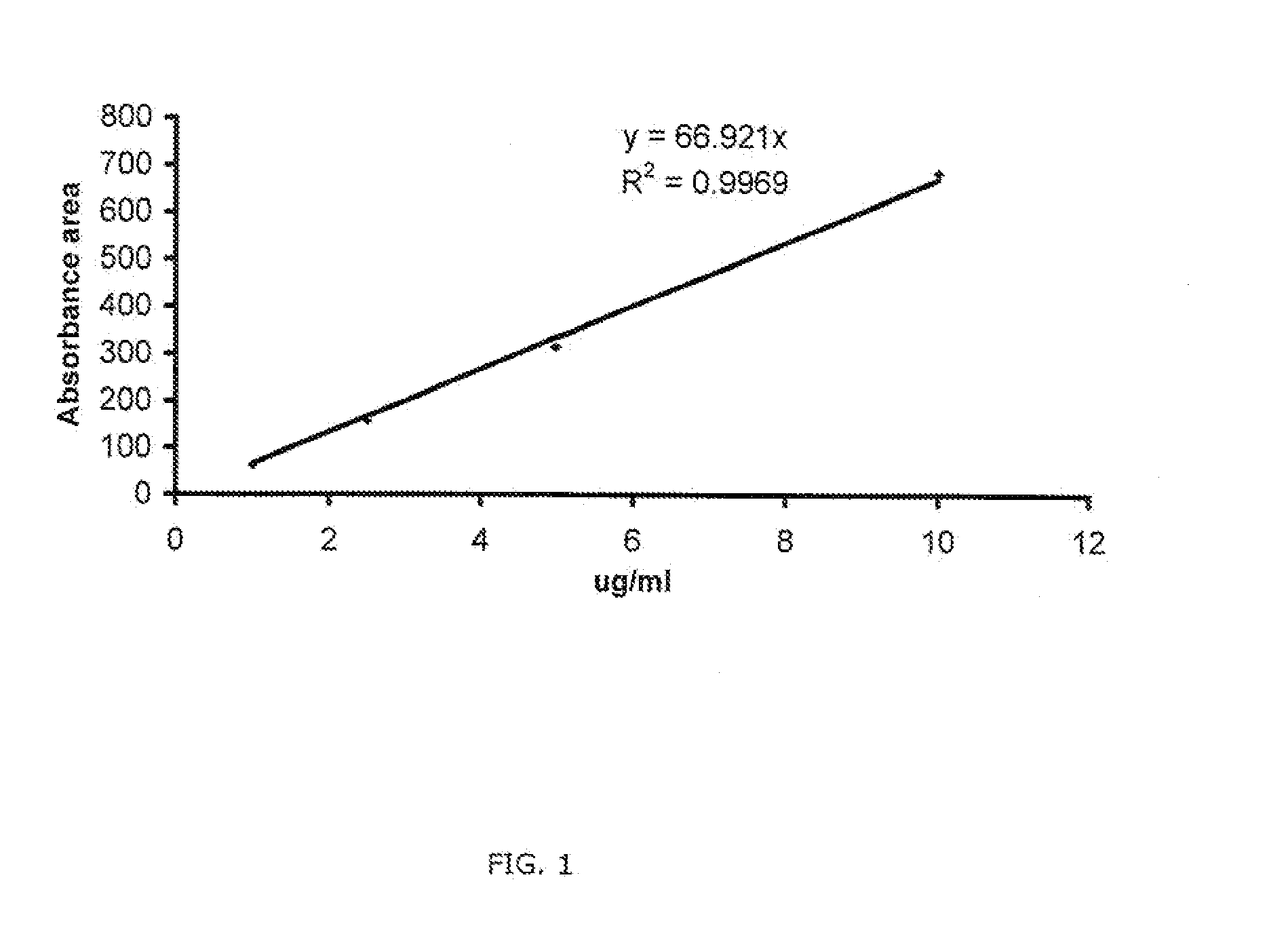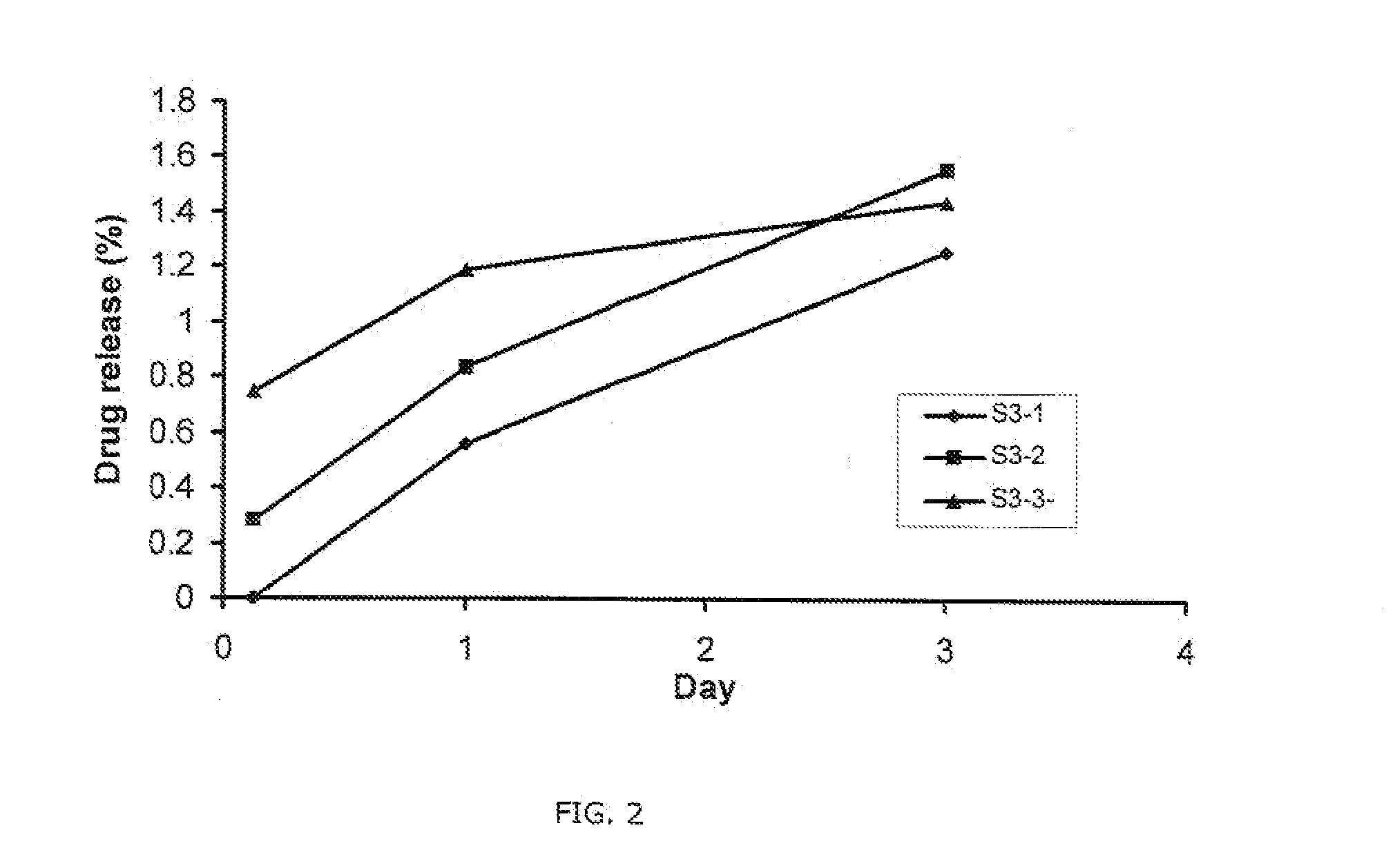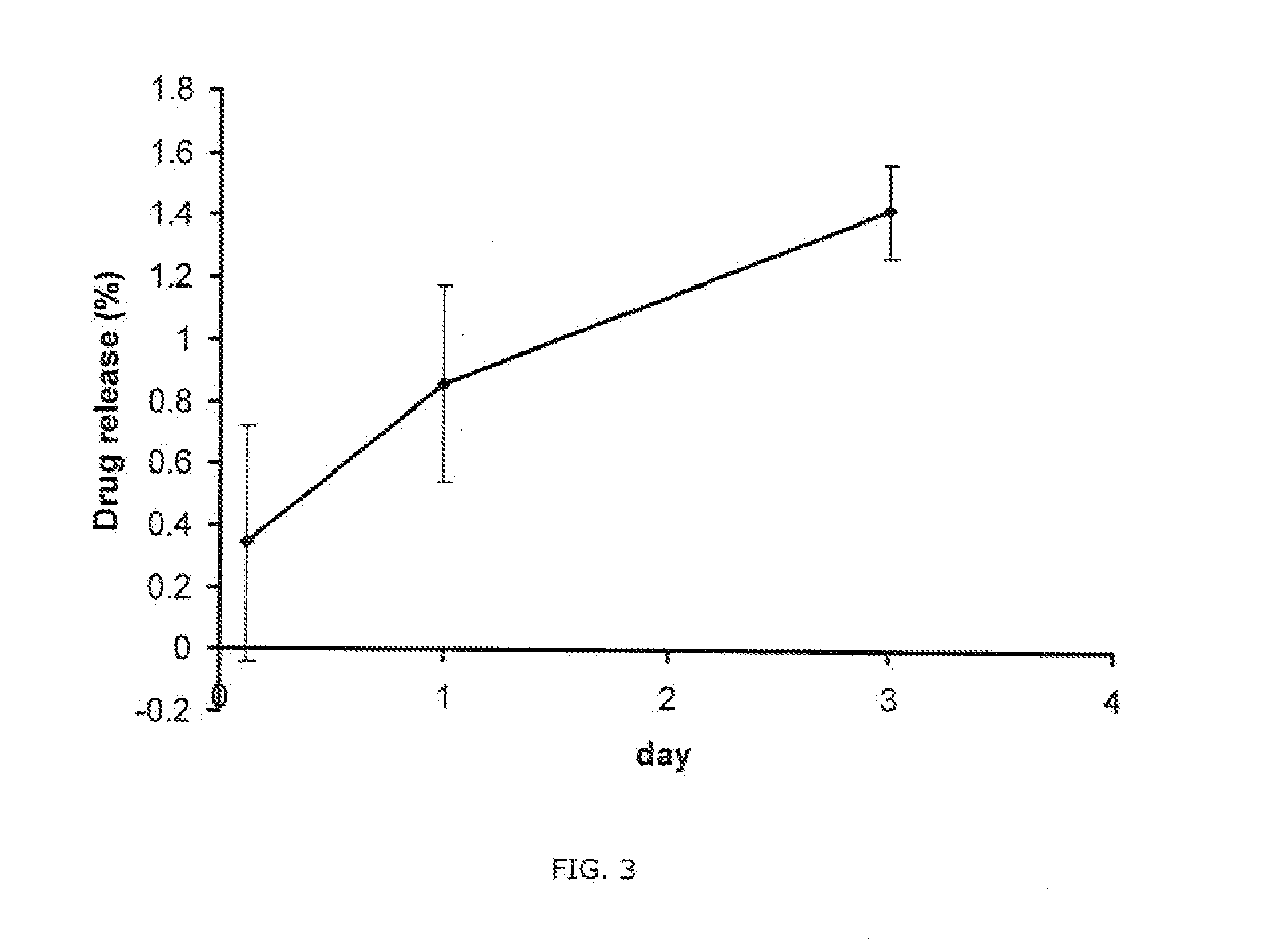Non-adhesive elastic gelatin matrices
a technology of elastic matrix and gelatin, which is applied in the field of non-adhesive elastic matrix, can solve the problems of inherently inelastic matrix material, inability to elasticize, and toxic properties of matrices, and achieve the effects of reducing chronic inflammation, promoting moist wound environment, and reducing infection
- Summary
- Abstract
- Description
- Claims
- Application Information
AI Technical Summary
Benefits of technology
Problems solved by technology
Method used
Image
Examples
example 1
(Gelatin+Alginate+PEG 3400) Dressing
[0046]
Stock solutions:Gelatin: 20% (w / v)Alginate:3.12% (w / v)PEG 3400: 63% (w / v)EDC / NHS: 40% (w / v) and 6% (w / v), respectively, (molar ratio: 4 / 1)Composition of water-saturated matrix:Gelatin: 10% (w / w)Alginate: 1.1% (w / w)PEG: 7.2% (w / w)
[0047]Gelatin (100 mL) and alginate (71.2 mL) solutions were mixed and Incubated at 55° C. for 30 min. Then 30 mL of PEG 3400 solution was added and mixed. Afterward, 5 mL of fresh EDC / NHS solution was added to the mixture during mixing for 30 seconds. The about 200 ml of gel was poured into a mold and kept at room temperature for 10 min and subsequently cooled at 4° C. for 30 min. The matrix was washed in water overnight to remove soluble components such as PEG and cross-linking agent. Finally, the matrix was lyophilized. Typically, 0.32 ml of gel mixture yields 1 cm2 of matrix surface area.
example 2
(Gelatin+Alginate+PEG 3400+Glycerol) Dressing
[0048]
Stock solution:Gelatin: 20% (w / v)Alginate:3.12% (w / v)PEG 3400: 63% (w / v)EDC / NHS: 40% (w / v) and 6% (w / v), respectively, (molar ratio: 4 / 1)Glycerol: 10% (w / v)Composition of water-saturated matrix:Gelatin: 10% (w / w)Alginate: 1.1% (w / w)PEG: 7.2% (w / w)Poly-Lysine: 0.1% (w / w)
Matrix Synthesis (e.g. 200 ml of gel)
[0049]Gelatin (100 mL) and alginate (71.2 mL) solutions were mixed and incubated at 55° C. for 30 min. Then 30 mL of PEG 3400 solution was added and mixed. Afterward, 5 mL of fresh EDC / NHS solution was added to the mixture during mixing for 30 seconds. The about 200 ml of gel was poured into a mold and kept at room temperature for 10 min and subsequently cooled at 4° C. for 30 min. The matrix was washed in water overnight to remove soluble components such as PEG and cross-linking agent. Usually, 0.32 ml of gel mixture yields 1 cm2 of matrix surface area. The matrix was soaked in 2.85 L of 10% glycerol (4.4 ml of glycerol per 1...
example 3
(Gelatin+Alginate+PEG 3400+Poly-L-Lysine) Dressing
[0050]
Stock solution:Gelatin: 20% (w / v)Alginate:3.12% (w / v)PEG 3400: 63% (w / v)Poly-L- 2% (w / v)Lysine:EDC / NHS: 40% (w / v) and 6% (w / v), respectively, (molar ratio: 4 / 1)Composition of water-saturated matrix:Gelatin: 10% (w / w)Alginate: 1.1% (w / w)PEG: 7.2% (w / w)Poly-lysine: 0.1% (w / w)
Matrix Synthesis
[0051]Gelatin and alginate solutions were mixed as in previous examples. Then 10 ml of 2% poly-L-lysine was added with mixing. 30 ml of PEG 3400 was added to the mixture and mixed. The remaining procedures to yield the final matrix were identical to previous examples.
PUM
| Property | Measurement | Unit |
|---|---|---|
| temperature | aaaaa | aaaaa |
| surface area | aaaaa | aaaaa |
| concentration | aaaaa | aaaaa |
Abstract
Description
Claims
Application Information
 Login to View More
Login to View More - R&D
- Intellectual Property
- Life Sciences
- Materials
- Tech Scout
- Unparalleled Data Quality
- Higher Quality Content
- 60% Fewer Hallucinations
Browse by: Latest US Patents, China's latest patents, Technical Efficacy Thesaurus, Application Domain, Technology Topic, Popular Technical Reports.
© 2025 PatSnap. All rights reserved.Legal|Privacy policy|Modern Slavery Act Transparency Statement|Sitemap|About US| Contact US: help@patsnap.com



